
-
Find the right food for your petTake this quiz to see which food may be the best for your furry friend.Find the right food for your petTake this quiz to see which food may be the best for your furry friend.Featured products
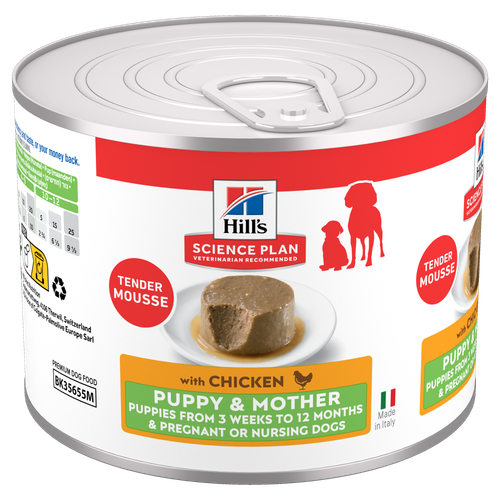 Puppy & Mother Tender Mousse Dog Food
Puppy & Mother Tender Mousse Dog FoodHill's Science Plan Puppy & Mother Tender Mousse Dog Food with Chicken is a complete premium pet food for puppies and pregnant or nursing dogs. Formulated with chicken and other specially selected ingredients, including minerals and antioxidants to support gut health and optimal growth, it comes in a soft mousse texture they'll love.
Shop Now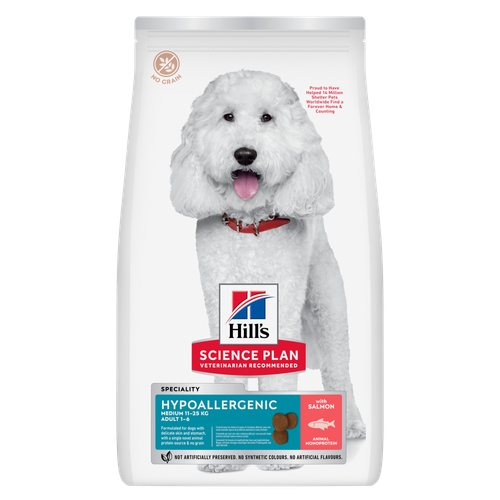 Hypoallergenic Medium Adult Dog Food
Hypoallergenic Medium Adult Dog FoodScience Plan Hypoallergenic Medium Adult dog food with Salmon is a gentle, science-led formula crafted for dogs with food sensitivities. Made with carefully selected, high-quality novel proteins and no grains, it’s tailored to minimise common triggers that can lead to skin and digestive discomfort.
Shop Now Perfect Weight Small & Mini Adult Dog Food
Perfect Weight Small & Mini Adult Dog FoodHill's Science Plan Adult Small & Mini Dog Food with Turkey is a complete premium pet food for adult small dogs from 1 year old that are prone to weight gain or slightly overweight. This deliciously smooth mousse is formulated to deliver the appropriate amount of energy to support weight maintenance in adult dogs.
Shop NowFeatured products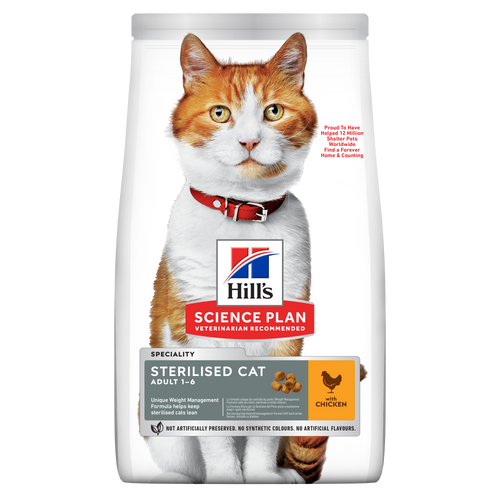 Sterilised Adult Cat Food
Sterilised Adult Cat FoodHill's Science Plan Adult Sterilised Cat Dry Food with Chicken is specially formulated with ActivBiome+ Multi-Benefit Technology. It is a precisely balanced nutrition, tailored to meet the needs of sterilised cats, to help keep sthem lean & healthy.
Shop Now Oral Care Adult Cat Food
Oral Care Adult Cat FoodHill's Science Plan Oral Care Adult Cat Food with Chicken contains clinically proven kibble technology to reduce plaque & tartar build up.
Shop Now Hypoallergenic Dry Cat Food
Hypoallergenic Dry Cat FoodHILL'S SCIENCE PLAN Hypoallergenic Adult cat food with egg & insect protein is a complete pet food for adult cat 1–6 years old. It's formulated for cats with delicate skin and stomach, with limited high quality novel protein sources & no grain.
Shop Now -
Dog
- Dog Tips & Articles
-
Health Category
- Weight
- Food & Environmental Sensitivities
- Urinary
- Digestive
- Joint
- Kidney
-
Life Stage
- Puppy Nutrition
- Adult Nutrition
- Senior Nutrition
Cat- Cat Tips & Articles
-
Health Category
- Weight
- Skin & Food Sensitivities
- Urinary
- Digestive
- Kidney
-
Life Stage
- Kitten Nutrition
- Adult Nutrition
Featured articlesTips for Working From Home With a PetGet helpful information on how to get all of your work done while keeping your dog or cat entertained when working from home.
Read More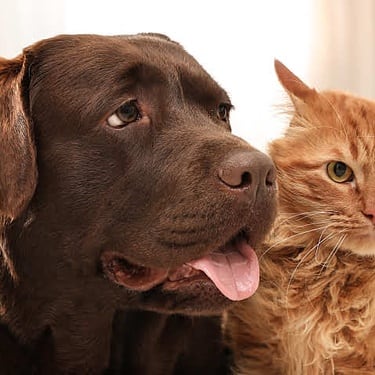 What Cleaning Products Are Safe for Pets?
What Cleaning Products Are Safe for Pets?Learn which cleaning product ingredients can be hazardous for dogs & cats, which alternatives are safer and tips for using cleaning products around pets.
Read More Tips For Mixing Wet And Dry Pet Food
Tips For Mixing Wet And Dry Pet FoodDiscover tips for mixing wet and dry pet food to ensure balanced nutrition and variety for your pet. For comprehensive feeding advice, visit Hill's Pet UK.
Read More -


A few years ago, the journal Frontiers in Psychology confirmed what pet parents already knew: that positive interaction with animals reduces stress in humans. This is great news for your health and longevity, but if you have a cat, you may wonder if the feeling is mutual. Do cats like to be petted? Do cats like to be held as much as we like to hold them?
If you do it correctly, the answer is yes. Many cats, despite the common and persistent myth that they are aloof, welcome affection from their people. In fact, petting and holding your cat helps build a loving relationship between the two of you.
Approaches to Petting
Petting your cat can be a tricky business. It's easy to misread a kitty's signals and end up touching them the wrong way or in a spot where they don’t like to be touched.
 Let's say, for example, they roll around on the floor and expose their tummy. This is their way of showing that they trust you. If you try to rub your cat's angelic belly fluff, however, they will probably respond with a scratch or a bite. You may think (with good reason) that your cat hates you, or that it's their way of telling you they don’t want to be petted at all. In reality, they are telling you that they just don’t want you to pet them right there, right now. Some cats do love a good belly rub, explains Petful, but you have to approach it with finesse, and only when they’re calm and relaxed.
Let's say, for example, they roll around on the floor and expose their tummy. This is their way of showing that they trust you. If you try to rub your cat's angelic belly fluff, however, they will probably respond with a scratch or a bite. You may think (with good reason) that your cat hates you, or that it's their way of telling you they don’t want to be petted at all. In reality, they are telling you that they just don’t want you to pet them right there, right now. Some cats do love a good belly rub, explains Petful, but you have to approach it with finesse, and only when they’re calm and relaxed.
In 2013, a study from the journal Physiology & Behaviour was widely misrepresented as proof that petting cats stresses them out. John Bradshaw, director of the Anthropology Institute at the University of Bristol, England reassures National Geographic that it was something in the cats' lives and not the act of petting that contributed to the animal's anxiety. (The experiment actually looked at how cats that live alone experience stress differently from those in multi-cat households.) Petting can comfort your kitty, so go ahead and snuggle up.


Tasty Tips
Head, Shoulders, Cheeks and Nose
So, in which places do cats like to be petted? The head, chin and neck are often their favourites. While some cats enjoy having their tails touched, others will recoil and even experience pain from a tail stroke. Take it slowly, paying close attention to your cat's reactions to your touch and always respecting their preferences.
When approaching your kitty, the most important trick is to allow them to take the lead, Animal Planet's Jackson Galaxy tells Petcha. Let your cat sniff your index finger and touch their nose against it first. If they want to cuddle, they’ll push their face against your hand and direct you to their ears, chin, or wherever they want to be petted. Going slowly will create a more relaxed, warm-hearted environment. If they start nudging you with their head or rubbing their cheeks against your body, it's a good sign, says Tufts University's Cummings School of Veterinary Medicine. "Bunting" behaviour is how cats transfer the scents in their cheek glands to beloved surroundings and family members.
In addition to being petted, do cats like to be held? Sometimes. Most cats love to snuggle, and they're typically responsive to being held if you introduce them to it gradually. The best way to approach your cat for a hug is to start with a few soft pets, then carefully pick them up. Be sure to secure all four of their legs so that they don't dangle. If they feel safe in your arms, they’ll be more inclined to stay there. If they squirm and want to get away, set them down gently and try again later. Learning to snuggle takes baby steps (and occasionally a tasty reward for not mauling your arms on the way down).

Does Breed Matter? What About Age?
Some cat breeds are more receptive to pets and hugs than others. The Siamese, for example, is a playful and fun-loving breed that will demand attention from you, as will the affectionate Ragdoll.
Don't be alarmed if your cat resists physical attention. It may just be part of their personality or upbringing. If a kitten isn't socialised with humans at an early age, they may be reluctant to accept affection. They may also need more coaxing if you adopt them as an adult and don't know their backstory. You can acclimate your kitty using some of the strategies above, but some cats simply don't enjoy being picked up, preferring to be a nestle-next-to-you cat instead of a lap cat.
Building trust is a gradual process in any relationship. When you invest your love and affection, you'll be rewarded with a feline best friend (and maybe even a belly rub).


Christine O'Brien is a writer, mom, and long-time cat parent whose two Russian Blues rule the house. Her work also appears in Care.com, What to Expect, and Fit Pregnancy, where she writes about pets, pregnancy, and family life. Find and follow her on Instagram and Twitter @brovelliobrien.
Related products

Hill's Science Plan Oral Care Adult Cat Food with Chicken contains clinically proven kibble technology to reduce plaque & tartar build up.
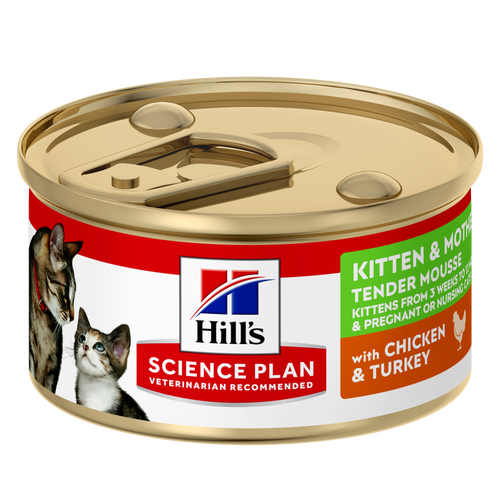
Hill's Science Plan Kitten & Mother Tender Mousse Cat Food with Chicken & Turkey is a complete premium pet food for kittens from weaning until 1 year old and for pregnant and nursing cats. Formulated with chicken, turkey and other specially selected ingredients to support gut health and optimal growth. It comes in a soft mousse texture they'll love.

HILL'S SCIENCE PLAN Hypoallergenic Adult cat food with egg & insect protein is a complete pet food for adult cat 1–6 years old. It's formulated for cats with delicate skin and stomach, with limited high quality novel protein sources & no grain.

Hill's Science Plan Adult Sterilised Cat Dry Food with Chicken is specially formulated with ActivBiome+ Multi-Benefit Technology. It is a precisely balanced nutrition, tailored to meet the needs of sterilised cats, to help keep sthem lean & healthy.
Related articles
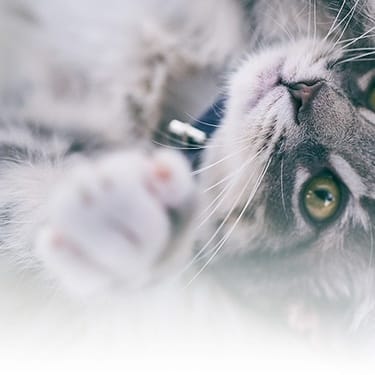
South African vets say more than half the patients they see are overweight. Learn more about managing your cat’s weight.
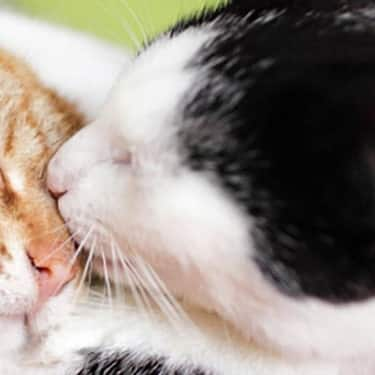
Learn the different factors that might be contributing to your cat's weight gain, and how bigger doesn't always mean better.
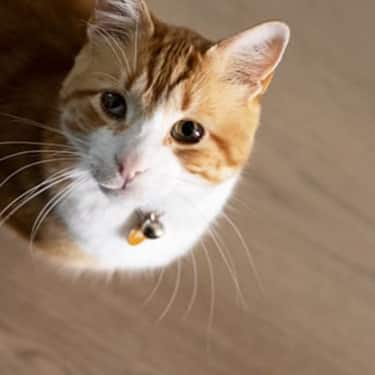
Learn how to spot the signs of a skin condition in your cat and the steps to take for their wellbeing. For comprehensive care advice, visit Hill's Pet.
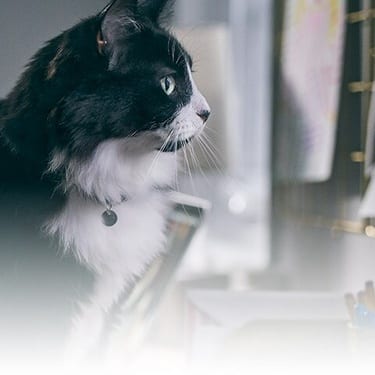
While hairballs are a common occurrence of cats, there are steps you can take to help them manage their problem and keep them healthy.

Put your cat on a diet without them knowing
Our low calorie formula helps you control your cat's weight. It's packed with high-quality protein for building lean muscles, and made with purposeful ingredients for a flavorful, nutritious meal. Clinically proven antioxidants, Vitamin C+E, help promote a healthy immune system.
Put your cat on a diet without them knowing
Our low calorie formula helps you control your cat's weight. It's packed with high-quality protein for building lean muscles, and made with purposeful ingredients for a flavorful, nutritious meal. Clinically proven antioxidants, Vitamin C+E, help promote a healthy immune system.

